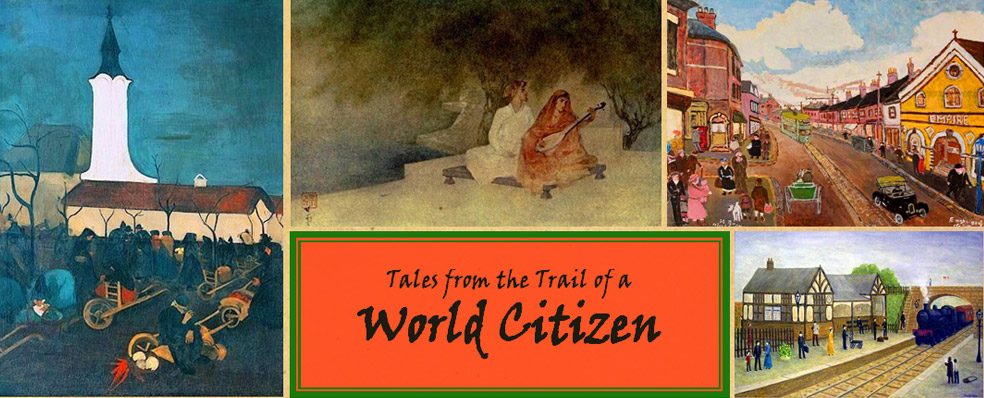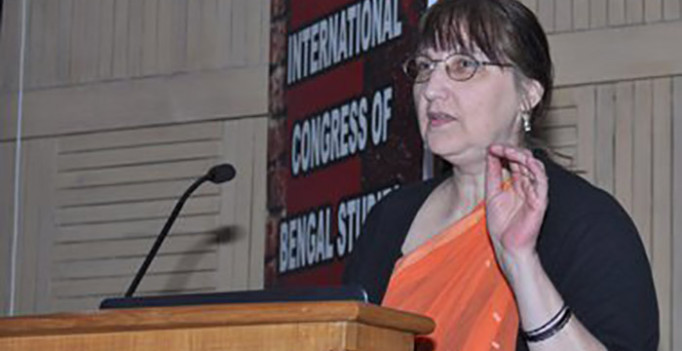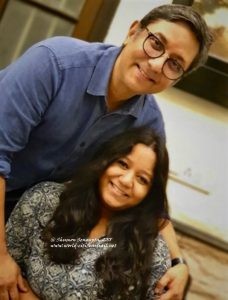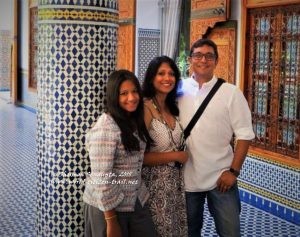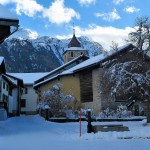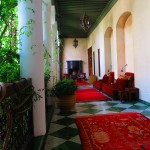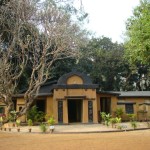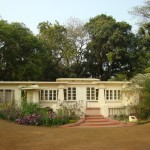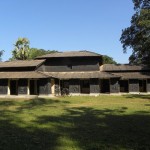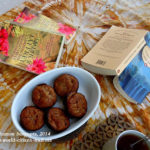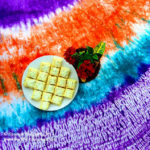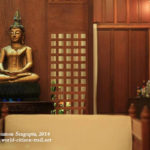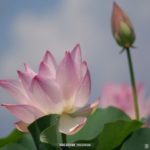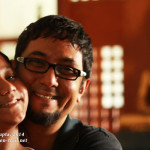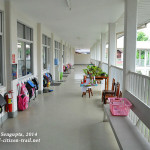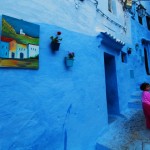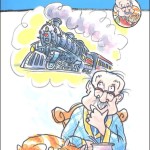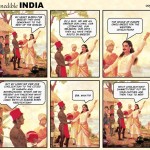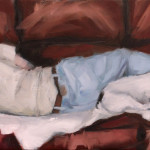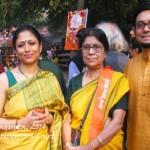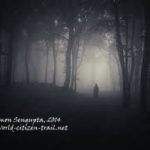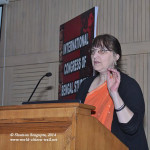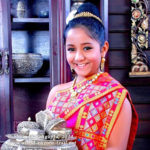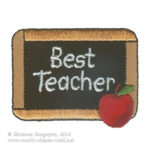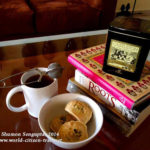Bengali Scholar in Freetown
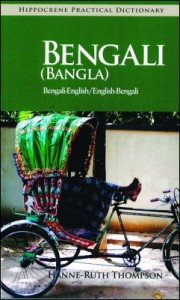 When I moved to Sierra Leone in West Africa a year ago, I did not expect to find many South Asians, let alone any Bengali speakers here. A few months into my stay in the country, however, I learn from two local sources that Freetown is host to a Bengali scholar of great distinction. Intrigued and excited, I make further enquires but neither of my two sources can tell me how to get in touch with this person. With pressures building up at work and work-related travel, my quest for the elusive linguist is put on the back burner.
When I moved to Sierra Leone in West Africa a year ago, I did not expect to find many South Asians, let alone any Bengali speakers here. A few months into my stay in the country, however, I learn from two local sources that Freetown is host to a Bengali scholar of great distinction. Intrigued and excited, I make further enquires but neither of my two sources can tell me how to get in touch with this person. With pressures building up at work and work-related travel, my quest for the elusive linguist is put on the back burner.
Then my friend Sahana Herrett tells me on facebook that she would like to introduce me to one Dr. Hanne-Ruth Thompson, a linguist from the School of Oriental and African Studies (SOAS) and a leading Bengali language expert. Sahana informs me that Dr. Thompson is currently based in Freetown with her economist husband Keith, who works for DFID, the UK Aid agency. I am surprised to learn that that this Bengali expert is not an Indian or a Bangladeshi, but a German!
Before long, I get a phone call and the lady at the other end says “Amar nam Hanna. Sahana amake apnar kotha boleche. Ami apnar shongge dækha korte chai” (My name is Hanna and Sahana has told me about you. I would like to meet you.)
I am delighted to hear Bengali spoken so perfectly and to have finally got in touch with her. Hanna then invites me to a Bengali Adda (an informal and spontaneous chat or discussion among like-minded people, without any set agenda) for a few Bengalis based in Freetown.
I look forward to meeting Hanna and Keith and tell Hanna that it will be a great honour for me to meet and know such an eminent scholar.
The Adda
It is a pleasant Saturday afternoon in Freetown and I find my way to Hanna and Keith’s place off Spur Road along the middle reaches of hills. I have already drawn a mental picture of Hanna – a serious academic – formal, prim and very “German”, but the reality is quite different. Draped in a simple, rust-orange cotton saree, Hanna gives me a beatific smile and reaches out to welcome me. Despite their eminence, Hanna and Keith come across as down-to-earth, genuine, warm and accessible people with whom I feel an immediate connection.
I am led to the sprawling terrace of their house with a panoramic view of the North Atlantic Ocean ahead and hills on both sides. It has rained earlier and the air is cool and fresh. The sky is partly overcast and streaks of sunlight pierce through gaps in the clouds and bounce off the water. More people arrive and settle down on the rattan sofas on the terrace. We chat over tea (the South Asian variety – strong, thick and sweet, made by one of the guests) and homemade semolina cake and cheese biscuits. Hanna, I discover, is an excellent baker.
An Equal Basis
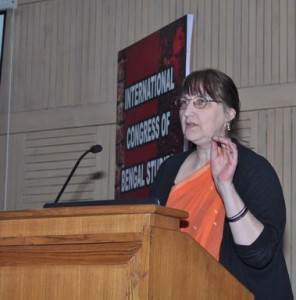 Since that day I have visited Hanna and Keith a few times and they have also come to my place. We have swapped various books and DVDs – there is a short supply of both in Freetown and we miss bookshops and libraries.
Since that day I have visited Hanna and Keith a few times and they have also come to my place. We have swapped various books and DVDs – there is a short supply of both in Freetown and we miss bookshops and libraries.
Right at the beginning of our second meeting Hanna said that she needed to put something straight. She said “Shumon, you call me an eminent scholar and say that you are honoured to meet me. That puts us on an unequal footing and makes me uncomfortable. You see, I want to meet people on an equal basis. I am not and you should not see me as superior to you in any way”. I was deeply touched by the humanism and humility of spirit expressed in this statement.
Over our interactions, I have got to know Hanna and her work in some depth. She has always had a love for languages. “As a small child I used to know whole Edith Piaf songs by heart without understanding the words, just because I loved the sounds of French. , she says.
The Love Affair with Bangla
Before moving to Bangladesh with her husband and three children in 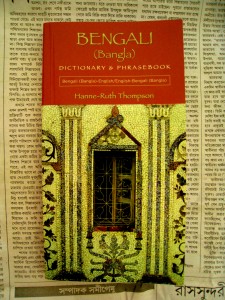 1991, Hanna had no idea that she would become an influential Bangla scholar. But as soon as she arrived in Dhaka, she fell instantly in love with the Bangla language and it changed her life. She had very little formal tuition in Bangla but was completely immersed in the language, living in Dhaka and spending a lot of time in “her” village in Natore during her three and a half year stay in Bangladesh. Years later, after completing her PhD on Bangla grammar, Hanna wrote, “For someone as spellbound by a language as I am by Bangla, it is advisable to couch that state of affairs in terms of a well-defined academic interest, in order to be taken seriously. Being in love with a language would, to many Europeans, appear eccentric. In my experience, Bengalis understand how someone can feel passionately about Bangla because they know that language can affect us on a level which goes deeper than mere intellectual interest. I also believe that in any serious endeavor we engage in, the passions of the heart and the powers of the mind have to come together and unite their energies towards a common goal”.
1991, Hanna had no idea that she would become an influential Bangla scholar. But as soon as she arrived in Dhaka, she fell instantly in love with the Bangla language and it changed her life. She had very little formal tuition in Bangla but was completely immersed in the language, living in Dhaka and spending a lot of time in “her” village in Natore during her three and a half year stay in Bangladesh. Years later, after completing her PhD on Bangla grammar, Hanna wrote, “For someone as spellbound by a language as I am by Bangla, it is advisable to couch that state of affairs in terms of a well-defined academic interest, in order to be taken seriously. Being in love with a language would, to many Europeans, appear eccentric. In my experience, Bengalis understand how someone can feel passionately about Bangla because they know that language can affect us on a level which goes deeper than mere intellectual interest. I also believe that in any serious endeavor we engage in, the passions of the heart and the powers of the mind have to come together and unite their energies towards a common goal”.
The Bangla Scholar
A friend of Hanna’s first suggested that she write a Bangla dictionary because of the unique way she had learnt the language. Her first book Essential Everyday Bengali, a short grammar and dictionary of colloquial Bangla, was published in 1999 by the Bangla Academy in Dhaka. It was an instant success and “a big boost to my confidence”.
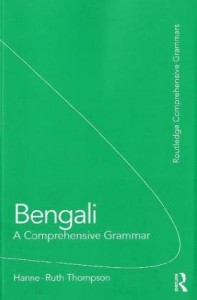 Hanna’s subsequent doctoral thesis was entitled: ‘Towards a definitive grammar of Bengali: a practical study and critique of research on selected grammatical structures’. Driven by her deep curiosity about Bangla grammar and frustrated at the lack of adequate linguistic analysis, she decided to write a new grammar herself, clearly a daring and ambitious venture to begin with, but a highly successful one in the end. Her PhD thesis was in effect a preparation for writing this grammar, based on contemporary, synchronic analysis. This means that instead of following the development of a language through its history, the language structures are analysed from the present point in time. This type of linguistic enquiry deals with the living language and tries to understand its processes and structures.
Hanna’s subsequent doctoral thesis was entitled: ‘Towards a definitive grammar of Bengali: a practical study and critique of research on selected grammatical structures’. Driven by her deep curiosity about Bangla grammar and frustrated at the lack of adequate linguistic analysis, she decided to write a new grammar herself, clearly a daring and ambitious venture to begin with, but a highly successful one in the end. Her PhD thesis was in effect a preparation for writing this grammar, based on contemporary, synchronic analysis. This means that instead of following the development of a language through its history, the language structures are analysed from the present point in time. This type of linguistic enquiry deals with the living language and tries to understand its processes and structures.
Pioneering Methodology and Teaching
Hanna sees the pioneering aspect of her research in her simple method of observation and description. Over a number of years she has been collecting example sentences from contemporary writings (of any kind) and used those examples as the basis for her analysis. She acknowledges her debt to her PhD supervisor, Dr William Radice, for encouraging her to develop her own methodology and for his faith in her work.
Her Bengali: A Comprehensive Grammar was published by Routledge in 2010 and has quickly become a standard text for students of the language outside as well as within Bengal.
Hanna is also a passionate and experienced teacher. She taught Bangla at SOAS for ten years, she has done language teacher training in Bangladesh, developed courses for recruiting more qualified Bangla teachers in the UK and was the Chair of Examiners for Bengali school examination bodies at both GCSE and A-Level in the UK for many years. Now that she lives in Sierra Leone, does she miss her teaching? Yes, she does, but one of the first small miracles of life in Freetown was the almost instant appearance of a ready-made beginner Bengali student, keen to start his lessons!
How difficult are Bangla grammatical structures to grasp for foreign learners? Hanna says that they are not particularly difficult but they are very different from English. She then gives a very simple example to show the difference in word order with Bangla moving inwards, i.e. getting progressively more specific and English moving outwards: from the specific to the general. Here is the example:
Bangla: 1.Rongpur , 2. jelar, 3.payrabondo, 4.gramer, 5.ækṭa baṛite
English: 5.at a house, 4.in the village, 3. of Payrabondo, 2.in the district, 1.of Rongpur
Hanna is probably the first teacher of Bangla to be able to point out this difference to her students.
Looking ahead
After the dictionary and phrasebook of Krio (the lingua franca of Sierra Leone) that she is completing at the moment, Hanna intends to do more literary translations from Bangla into German – she has previously translated one of Buddhadeva Bose’s novels. She is working on a new course book for beginner students and also on a monograph on Bangla verbs. One of her upcoming projects is an online Bangla course for students who do not have access to classes. Hanna is also concerned by the way grammar is taught to school-children in both Bangladesh and West Bengal. “Children come away from this experience thinking that Bangla grammar is extremely complicated and scary. It is not, and I would love to show them how much joy there can be in discovering more about their own language.”
On the topic of her international standing, Hanna says: “I don’t know about being an eminent linguist, but I love this language and I love my work. I invest a lot of time, effort and thought in order to try and do this language justice. If my work inspires just a few other linguists to take a more serious interest in Bangla and not just make do with the worn-out, tired interpretations of a hundred years ago, then I will feel I have done my job”.
The Honorary Bengali
In addition to her scholarly pursuits, Hanna also enjoys classical music, she loves reading, poetry, travelling and exploring and, above all, she is fascinated by people and what makes them the way they are.
Little wonder that “Adda” – something that is so quintessentially Bengali – should be initiated of all places in Freetown in West Africa and hosted not by a Bengali but by a German scholar of the Bengali language and her British husband! This, among other things, truly makes Dr. Hanne-Ruth Thompson an honorary Bengali.
